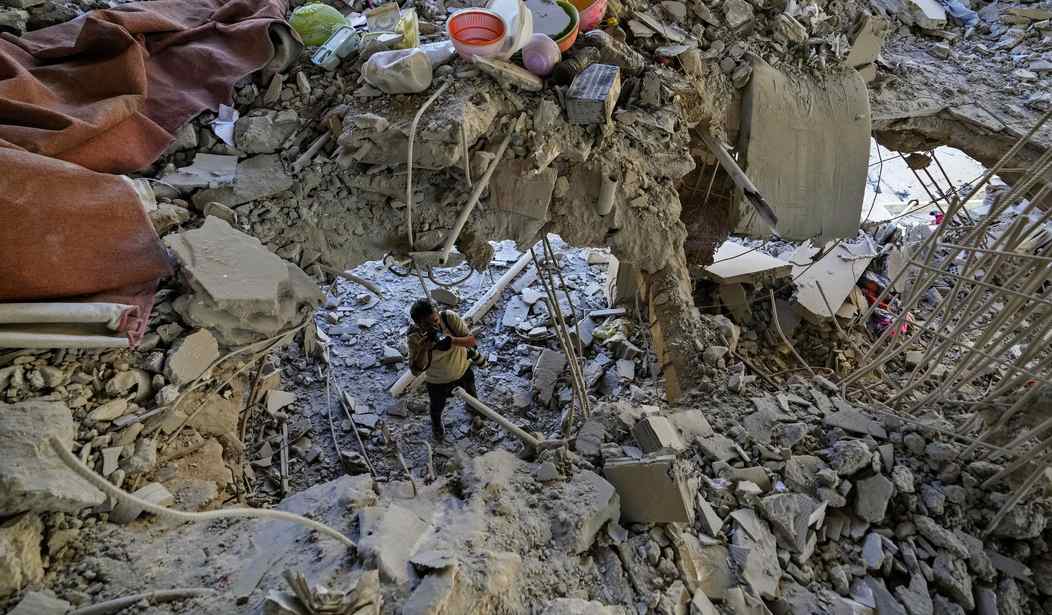Last night, the Israeli Defense Force (IDF) announced that it was conducting “limited, localized, and targeted ground raids” inside Lebanon. The IDF also announced that they had attacked “Hezbollah targets and infrastructure” in villages along the border that posed a direct threat to Israeli citizens.
Israeli officials told the Times of Israel that the U.S. had been informed of the action and that it was designed to push Hezbollah back from the border. How far from the border the IDF will push the terrorists is unknown, but the Litani River is 18 miles from the Israel-Lebanon border and that's the line the UN drew in ending the 2006 war.
Additionally, Axios is reporting that Israeli officials told the U.S. that the operation was limited in "time and scope" and that Israel had no intention of occupying Southern Lebanon.
Where is Iran? Their closest ally is getting systematically dismantled by the IDF, and Tehran has had very little to say beyond pro forma condemnations of Israel and the U.S. And the Iranians have yet to fulfill their promise to strike Israel after the death of Ismail Haniyeh last July. It's true Iran is in the middle of a presidential transition as Masoud Pezeshkian is looking to consolidate his power. But it's unclear whether Iran fears a domestic response to any foreign engagements. Iran is a tinder box waiting for a spark to once again send its citizens into the streets to protest the brutality and backwardness of the regime.
"It feels like we are witnessing a substantial shift in the balance of power in the Middle East, in Israel’s favour and at Iran’s expense," writes former chief of MI6 and UK ambassador to the UN John Sawers in the Financial Times.
Since Hamas’s brutal October 7 assault a year ago, Iran has been loud on rhetoric but has done little of substance to protect the militias it helped build up. In his UN speech, President Masoud Pezeshkian put the priority on lifting sanctions — a goal diametrically opposed to getting involved on Hizbollah’s behalf. Iran’s vice-president for strategic affairs, Mohammad Javad Zarif, said recently that supporting the Palestinians didn’t mean going to war for them. Iran seems cowed, lacking the will and military capacity to respond and not prepared to risk instability at home as it enters an uncertain leadership transition.
Israel has smelled the weakness in Tehran and is driving home its advantage. No one should feel sorry for Hizbollah — for over 40 years, it has used violence to accumulate power in Lebanon. Those who live by the sword die by the sword.
“We are ready for ground engagement with the enemy if they decide to enter,” deputy secretary-general Naim Qassem said in televised remarks on Monday. In 2006, Hezbollah rudely surprised the IDF with a sophisticated defense that destroyed a couple of dozen tanks and killed 125 Israeli soldiers. Prime Minister Benjamin Netanyahu is not likely to repeat that mistake.
Neither is he going to back down from a fight. Hezbollah has never been weaker or more disorganized. They are reeling from blow after blow delivered by Israeli intelligence and a massive bombing campaign that took out much of the terrorists' stock of missiles.
Hezbollah would prefer fighting Israel on the ground in Southern Lebanon. It's unclear whether Netanyahu will oblige them.
Hezbollah appears so weakened by Israeli operations—including the strike that killed Nasrallah—that Israel’s dilemma would actually be how far Israel should go into Lebanon, said Amir Avivi, a former senior Israeli military official who continues to be briefed by the defense establishment. When and under what terms Israel would leave remain unclear, he said.
Exclusively for our VIPs: This Is How Israel Killed Hezbollah Leader Hassan Nasrallah in an Underground Bunker
Sawers believes "The best time to engage in a political process is when you are strong and your enemies are weak." But Israel has very little motivation to engage in any kind of negotiations at present. They're winning. And as long as they continue to win, there's no political pressure on Netanyahu to do anything but what he's been doing all along: destroying Israel's enemies.










Join the conversation as a VIP Member